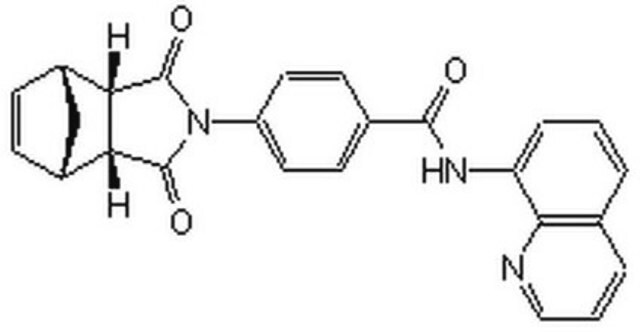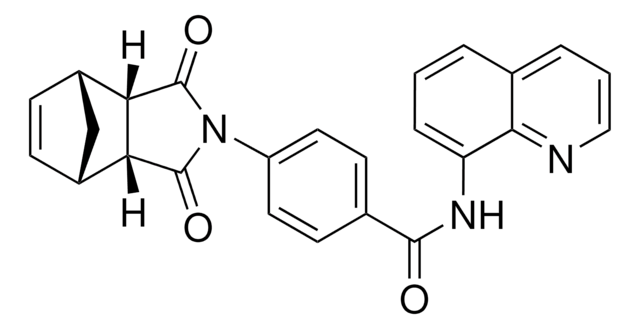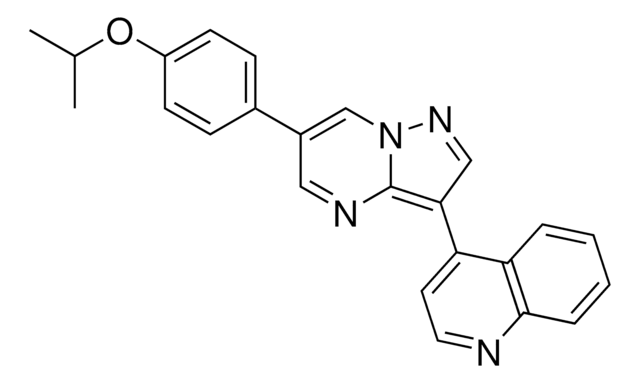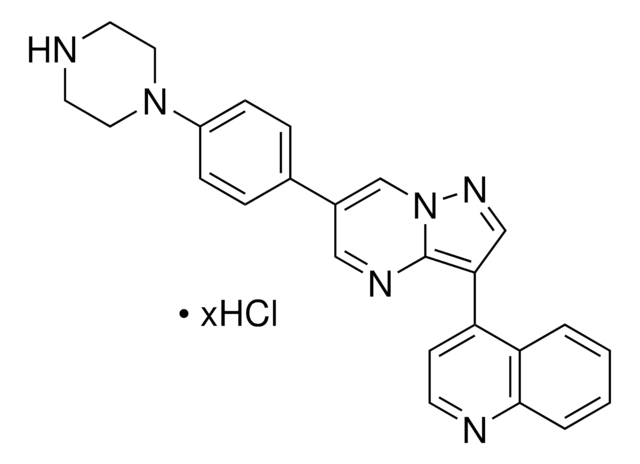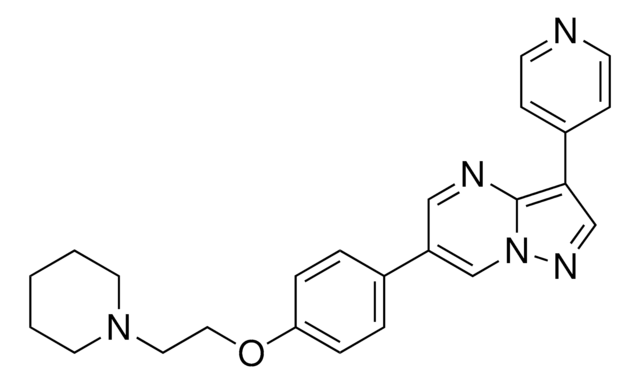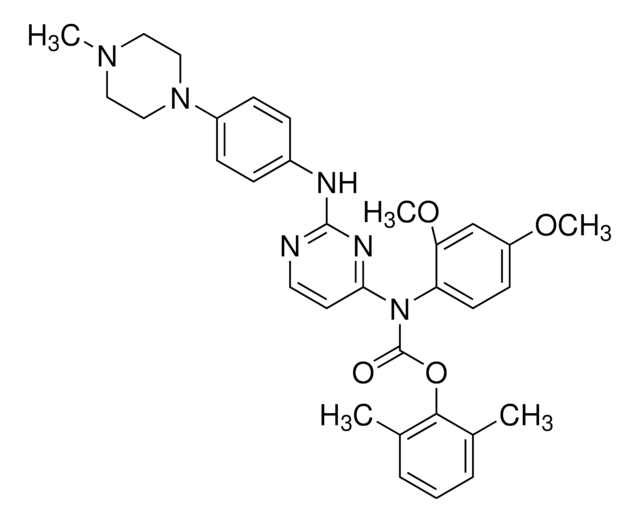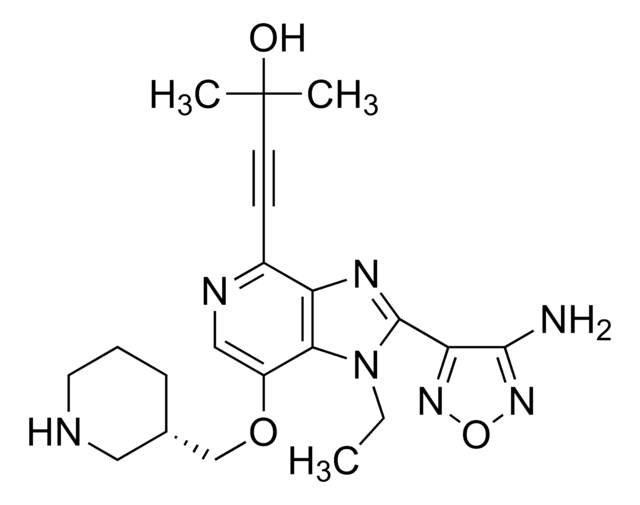SML1307
K02288
>98% (HPLC)
Synonym(s):
3-[(6-Amino-5-(3,4,5-trimethoxyphenyl)-3-pyridinyl]phenol, 3-[6-Amino-5-(3,4,5-trimethoxyphenyl)-3-pyridinyl]-phenol
About This Item
Recommended Products
Quality Level
Assay
>98% (HPLC)
form
powder
color
white to beige
solubility
DMSO: 5 mg/mL, clear (warmed)
storage temp.
2-8°C
SMILES string
NC1=C(C2=CC(OC)=C(OC)C(OC)=C2)C=C(C3=CC=CC(O)=C3)C=N1
InChI
1S/C20H20N2O4/c1-24-17-9-13(10-18(25-2)19(17)26-3)16-8-14(11-22-20(16)21)12-5-4-6-15(23)7-12/h4-11,23H,1-3H3,(H2,21,22)
InChI key
CJLMANFTWLNAKC-UHFFFAOYSA-N
General description
Biochem/physiol Actions
BMP signalling is associated with many important physiological processes. It acts a central regulator of developmental processes such as organogenesis, gastrulation, mesoderm induction and endochondral bone formation. BMP signals are also related to diseases including pulmonary hypertension, juvenile polyposis syndrome, fibrodysplasia ossificans progressiva and hereditary hemorrhagic telangiectasia syndrome. BMP signaling inhibition might serve as a tool to study its role in other biological processes.
Signal Word
Danger
Hazard Statements
Precautionary Statements
Hazard Classifications
Acute Tox. 3 Oral - Eye Dam. 1
Storage Class Code
6.1C - Combustible acute toxic Cat.3 / toxic compounds or compounds which causing chronic effects
WGK
WGK 3
Flash Point(F)
Not applicable
Flash Point(C)
Not applicable
Choose from one of the most recent versions:
Certificates of Analysis (COA)
Don't see the Right Version?
If you require a particular version, you can look up a specific certificate by the Lot or Batch number.
Already Own This Product?
Find documentation for the products that you have recently purchased in the Document Library.
Our team of scientists has experience in all areas of research including Life Science, Material Science, Chemical Synthesis, Chromatography, Analytical and many others.
Contact Technical Service

